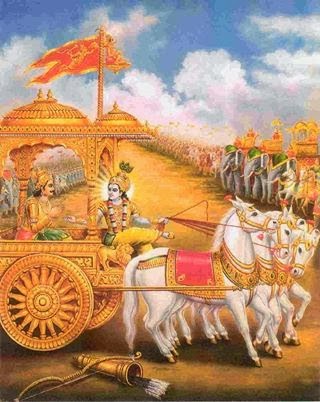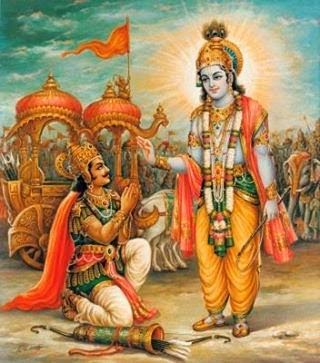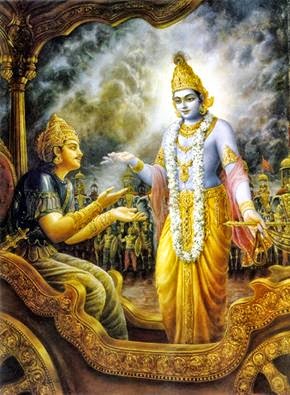The Great Epic Mahabharatam :10.

A discourse of Swami Vivekananda on Mahabharata : (Delivered at the Shakespeare Club, Pasadena, California, February 1, 1900) Then came Yama, the God of Death, the Judge of the dead. He was the first man that died — the first man that died on earth — and he had become the presiding deity over all those that die. He judges whether, after a man has died, he is to be punished or rewarded. So he came himself. Of course, he could go inside that charmed circle as he was a god. When he came to Savitri, he said, "Daughter, give up this dead body, for know, death is the fate of mortals, and I am the first of mortals who died. Since then, everyone has had to die. Death is the fate of man." Thus told, Savitri walked off, and Yama drew the soul out. Yama having possessed himself of the soul of the young man proceeded on his way. Before he had gone far, he heard footfalls upon the dry leaves. He turned back. "Savitri, daughter, why are you following me? This is the fat






